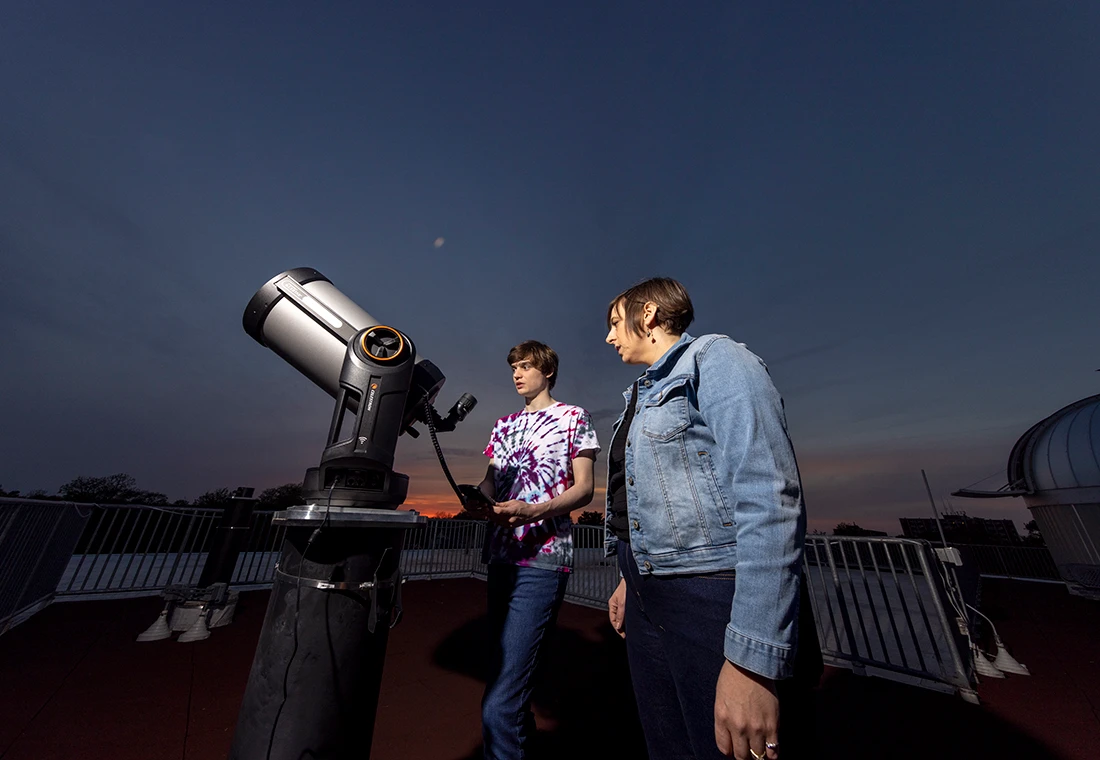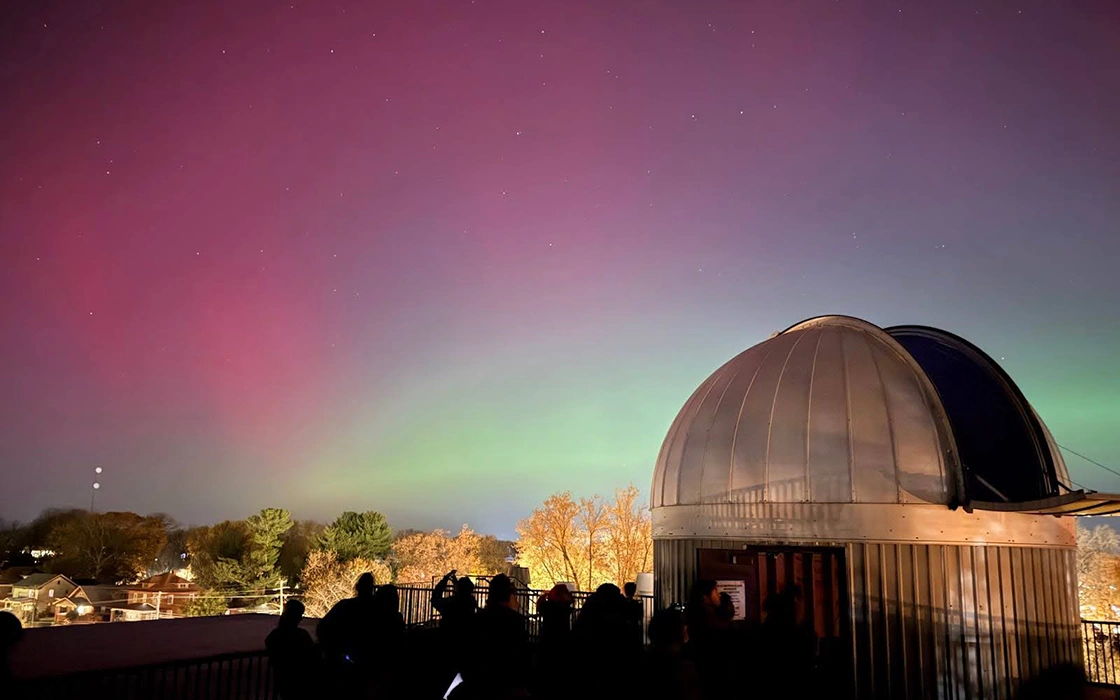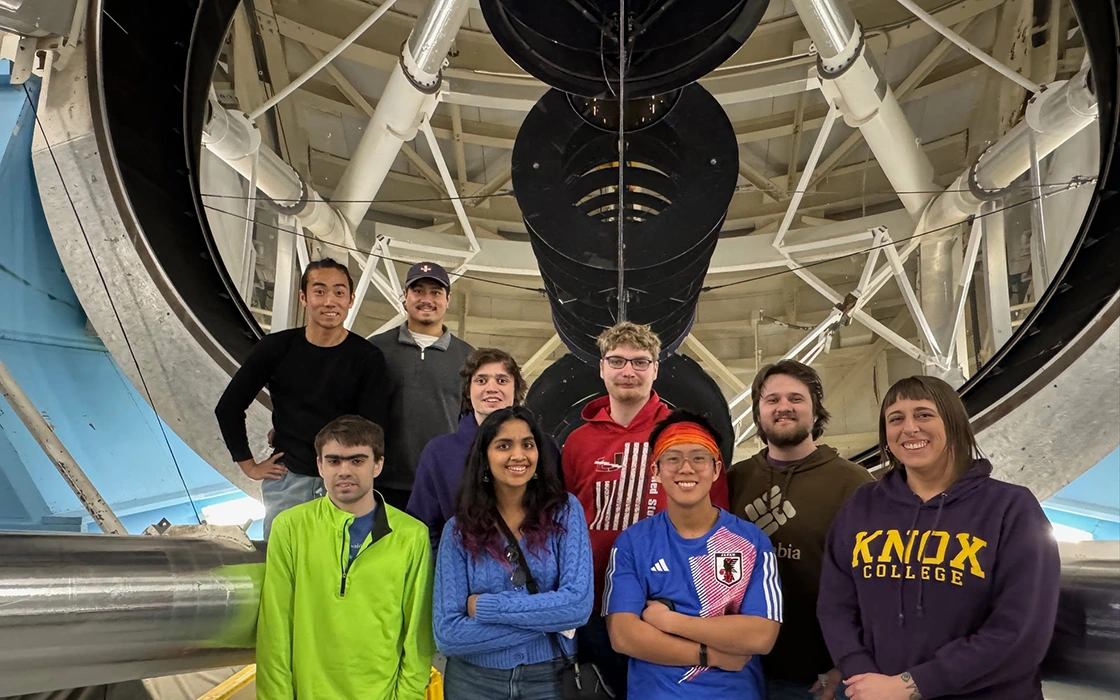Knox Students Gain Experience in Astronomy Consortium
Knox College is part of the MACRO Consortium, which maintains and operates a remotely controlled robotic telescope in Sonoita, Arizona.


Turn our observatory into your laboratory—explore the cosmos through hands-on research and collaborative discovery, and build lasting partnerships that reach far beyond our campus.

Our rooftop observatory is the heart of astronomy at Knox—a fully equipped research and teaching facility featuring a 17-inch PlaneWave telescope housed beneath a 16-foot dome, along with multiple portable telescopes, spectroscopic instrumentation, and CCD and CMOS imaging systems.
Students take the lead here: designing observing projects, collecting data on variable stars, exoplanets, and cataclysmic variables, and learning to calibrate, process, and interpret real astronomical observations.

Knox is an active member of the MACRO Consortium, a multi-institution partnership that shares telescope time, data, and expertise among liberal-arts colleges engaged in astronomical research.
Through this collaboration, our students contribute to observing campaigns alongside researchers. Many go on to present their work at regional and national conferences, often as co-authors on published studies.
This network gives Knox students access to large-scale research opportunities with the close mentorship that defines a Knox education.

In and beyond the classroom, you’ll have opportunities to put physics and astronomy into practice:
Students who combine the Astronomy minor with a Physics major receive the equivalent of an Astrophysics education—the same rigorous preparation offered by larger universities, but with the mentorship and hands-on experience that only Knox can provide.
You’ll gain the theoretical foundation of physics, the observational and computational skills of astronomy, and direct experience with instrumentation and data analysis. This combination prepares you well for graduate study in astronomy, astrophysics, or space science, as well as for careers in data analysis, engineering, and technology.
Knox astronomy students graduate with a deep foundation in physics, analytical methods, and scientific computing—and with hands-on experience that stands out. Many continue into graduate programs in astrophysics, data science, and engineering; others apply their skills to instrumentation, teaching, and science communication.
Knox College is part of the MACRO Consortium, which maintains and operates a remotely controlled robotic telescope in Sonoita, Arizona.
Knox chosen as one of 14 nationwide host sites for SSP International's prestigious Summer Science Program
Contact us to find out more about our comprehensive majors, minors, and programs.